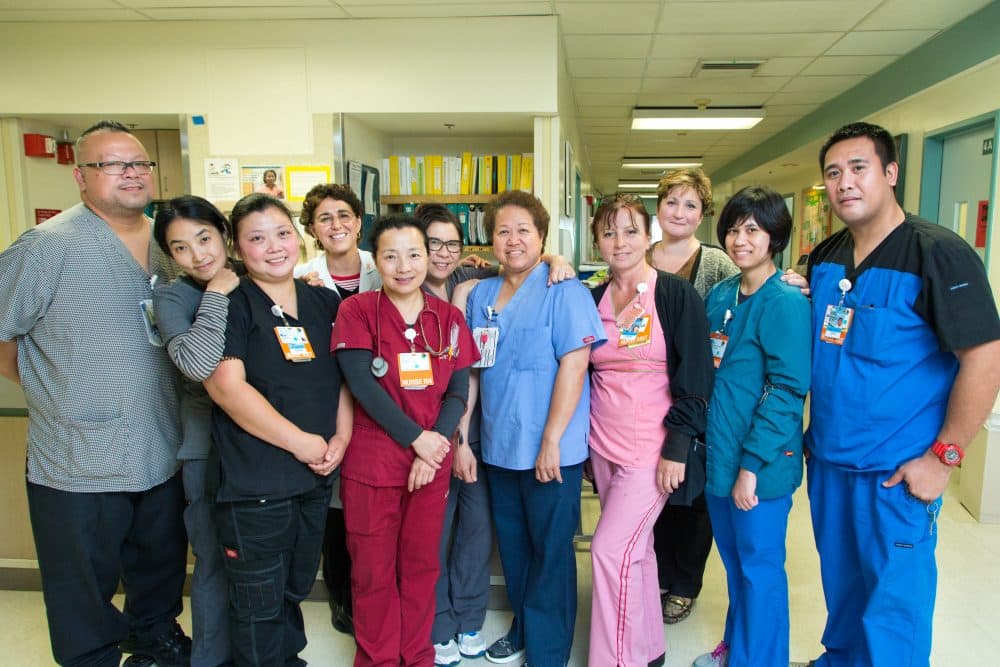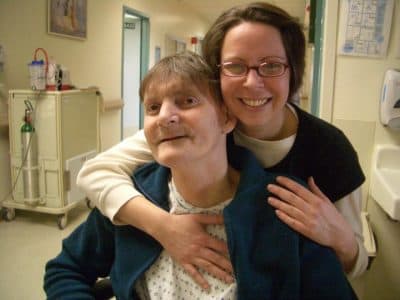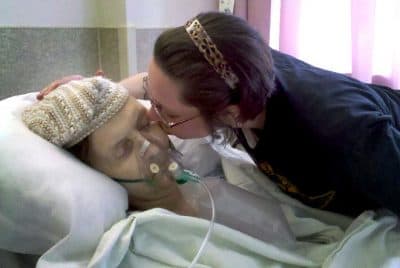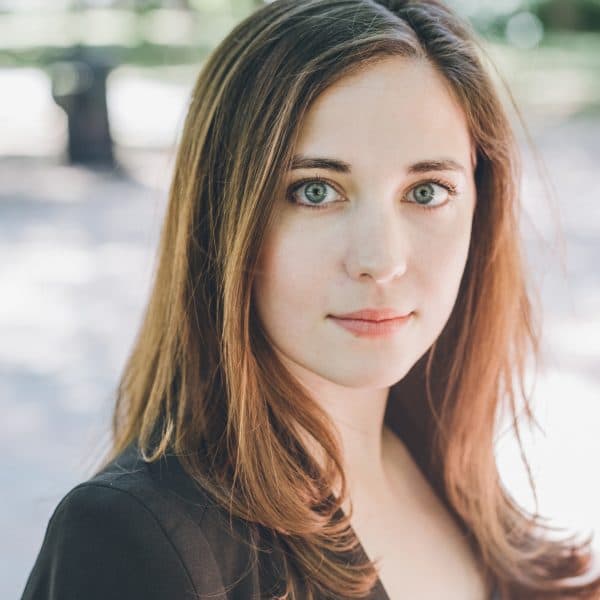Advertisement
So Much More
ResumeWhen Dr. Shieva Khayam-Bashi met Joe Nazworthy, Joe was on his stomach, and a nurse was dressing a large open wound that encompassed nearly his entire back.
Joe had just had several huge malignant melanomas excised from his back. The skin cancer spots had gotten that big because he couldn’t see them, and he didn’t have anyone in his life who would have noticed them, either.
“I crouched down and introduced myself,” says Dr. K, as she's commonly known. She's a family physician at San Francisco General Hospital, a county hospital for underserved and often uninsured patients.
"He just, in a way that I didn’t expect, lit up as though he knew me and smiled. I was very surprised and taken aback by that kind energy about him."

It struck Dr. K that Joe never complained about being sick, maybe because he’d been through worse.
"He really had a lot of hard things happen to him. My guess is he had been homeless off and on at least, and he’d made choices that he didn’t feel proud of."
Joe had suffered from chronic depression. Now he quickly became a beloved figure around Ward 4A, the skilled nursing facility overseen by Dr. K. He'd help older patients cut their food, or he’d push people in wheelchairs, and, because Joe had been a musician in a former life, he’d sometimes sit in front of the nurses station and play his guitar, while other patients gathered round.
"They would just sit there and listen and close their eyes and just be taken away by it," Dr. K says. "There was such a gentleness to his nature, and I told him that a lot, I remember. ‘You know, Joe, how is it that you’re such a kind soul?’ And he would blush. It was less than a year, but we were his family."
By the end of the year, Joe’s cancer had spread, and Dr. K had to tell him he didn’t have long to live. He was calm about it, but he said one thing that surprised her.
“I remember that he said, ‘The only thing I wish for would have been to see my daughter.’ He told me he really loved her.”
Apparently Joe had an estranged daughter. She’d been born with heroin in her system and was put in foster care as a baby. Then she was adopted, and eventually father and daughter lost contact.
To the staff of Ward 4A, the mission was obvious: find Joe's daughter.
Natasha Ambrose remembers the phone call from Dr. K saying her biological father was dying. She was in her mid-30s by then with a family of her own.

“It was a blend of emotions,” Natasha says. “It was shocking, and then went into, oh my gosh, OK, let me get the day off. I’ll be down as soon as I can.”
Natasha drove six hours to the hospital. It had been two decades since she had seen Joe, but that day, they talked for hours. The hospital staff broke the rules to let her stay with him in his room through the night.
“It was important to them, for his sake, that I be there,” she says.
Joe’s health improved in the weeks after Natasha’s visit. The two would talk by phone, and she arranged for Joe to enter hospice near her home. He was looking forward to meeting his infant grandson.
Then Natasha got another phone call: Joe had taken a sudden turn. Natasha needed to fly soon if she wanted to say goodbye, but Dr. K knew that finding travel funds would be a challenge. So the hospital staff pooled the money to fly Natasha and her son to San Francisco.
At this point, Joe was nonverbal, Dr. K says, “and I remember each of the nurses and me at varying times dropping into his room, saying, ‘Joe, Natasha’s on her way. Try to hang on.’ ”
By the time Natasha and her son got there, Joe was pretty out of it. “Here’s your grandson,” she said, placing her son on his lap. Then, while the staff took turns watching the baby, Natasha sang to her dying dad. They both loved music, after all.

“When I checked in on her, I think I perceived tears coming from his eyes,” Dr. K says.
A few hours later, when Joe took his last breath, Natasha was sitting next to him.
“My last words to him were, ‘It was disappointing to not have known you as I was growing up, but I’m glad to be here now.’ And that’s when I pulled down his beanie, and kissed him on the cheek. It was truth.”
The next day, the staff invited Natasha back to Ward 4A for a memorial, and staff members sat in a circle and told stories about Joe.
“They totally rearranged my perception of who my father was,” says Natasha. “Here I was thinking he was a derelict alcoholic or drug abuser, but he was so much more.”
Thanks to the Schwartz Center for Compassionate Healthcare for helping us find this story. Dr. K was a 2016 finalist for the center's National Compassionate Caregiver of the Year Award.
We want to hear your stories of kindness. Find us on Facebook or Twitter, or email kindworld@wbur.org. You can also subscribe to the podcast.
This segment aired on February 28, 2017.
